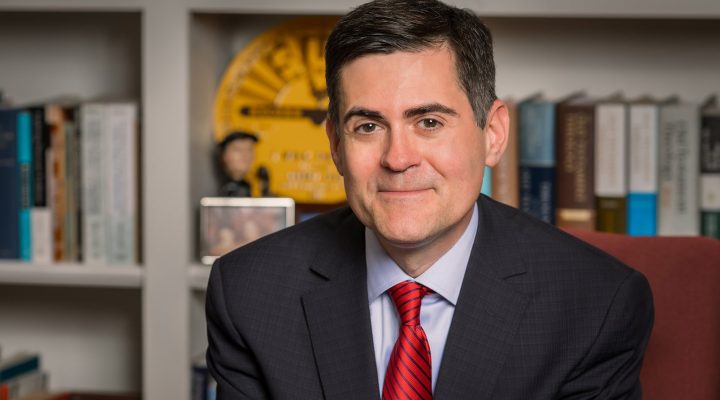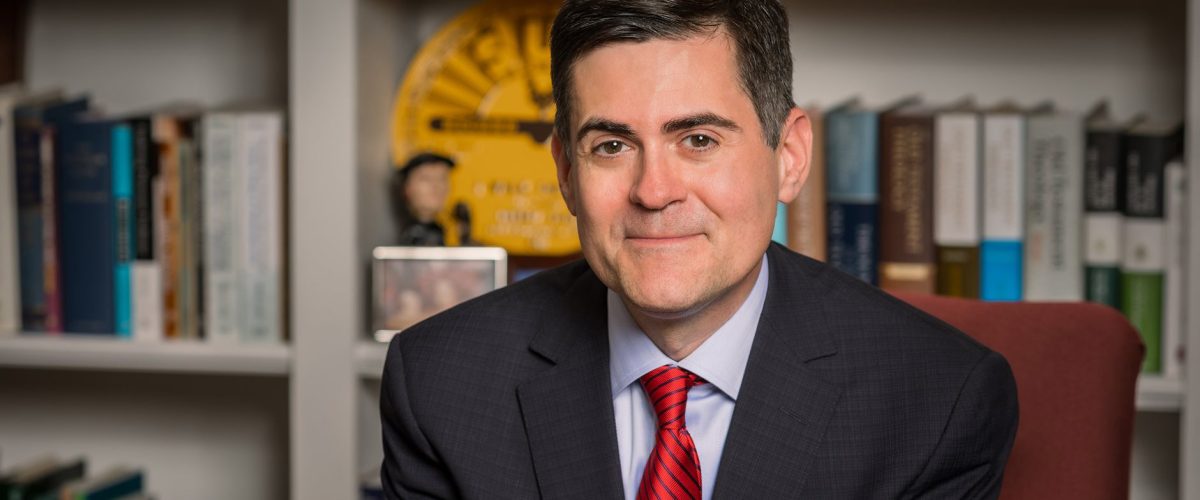The man the TheoBros love to hate has been named editor in chief of the nation’s flagship magazine for evangelical Christians.
Russell Moore, former head of the Southern Baptist Convention’s Ethics and Religious Liberty Commission, was announced Aug. 4 as the successor to Daniel Harrell, who served as editor in chief of Christianity Today for about two years.
For just more than a year, Moore has served at Christianity Today as public theologian and director of the Public Theology Project. He went to that post from the ERLC, where he had suffered persistent criticism from the most far-right sector of the SBC, largely comprised of ultra-conservative Calvinists sometimes known collectively as the TheoBros.
Moore was an outspoken leader in calling for awareness of and justice for victims of sexual assault in SBC churches. That put him at odds with powerful institutional forces that wanted to suppress any investigation, as well as a group of male headship purveyors who believed there was no “crisis” to be investigated.
Moore was an outspoken leader in calling for awareness of and justice for victims of sexual assault in SBC churches.
After an independent investigation documented a long-term pattern of covering up and denying abuse in SBC churches, Moore famously called the report the SBC’s “apocalypse.” That earned him further derision from the abuse deniers.
Nearly 15 months after Moore left the ERLC, trustees have yet to name his successor — an unusually long gap in leadership for an SBC agency. Critics of Moore and the ERLC have continued to lobby for the agency to be shuttered, although they have repeatedly lost that battle.
Moore, who is a staunch conservative evangelical and anti-abortionist, also drew criticism for not supporting Donald Trump in his bid for election and reelection as U.S. president. Moore said Trump was morally unfit for the office, even though he favored Trump’s push to appoint Supreme Court justices to overturn Roe v. Wade.
Upon his departure from the ERLC, Moore also left affiliation with the SBC, becoming minister in residence at Immanuel Church, a nondenominational congregation in Nashville.
In his new role as editor in chief at Christianity Today, Moore follows a long line of well-known names in theological circles — although he lacks the journalistic training typically expected of an editor in chief. The magazine’s CEO, Timothy Dalrymple, said another staff member, Joy Allmond, will become editorial chief of staff.
Veteran reporter Kate Shellnut announced via Twitter that she, too, would assume a new role as editorial director of news and online.

Timothy Dalrymple
“That Moore is a person in possession of extraordinary talents is incontestable,” Dalrymple wrote in announcing the new editor. “He was named dean of the School of Theology at Southern Baptist Theological Seminary when he was a mere 32 years old. Through his books, his articles and podcasts, his public speaking, and his leadership of the Ethics and Religious Liberty Commission, Moore has served as possibly the most prominent evangelical Christian public voice in the country for the past decade. Anyone who has read his writings or heard his oratory will attest to his prodigious natural gifts.”
In addition, Dalrymple wrote, “Moore has demonstrated, time and again, the courage to express his convictions and the integrity to live by them. Sometimes this has meant contending for essential biblical and theological truths in the public square. Sometimes it has meant declaring truths to the church that challenge and convict us. He has worked tirelessly to help men and women of evangelical conviction address the sin within our own ranks, whether that is related to idolatry and prejudice or abuse and neglect. Moore has taken on some of the most important and urgent objectives of our time, even when it has meant suffering the slings and arrows of critics both inside and outside the camp.”
Christianity Today, founded in 1956 by evangelist Billy Graham, has staked out a prominent place in the dialogue among evangelical Christians — a group that until the last 20 years or so did not explicitly include Southern Baptists, who tended to operate in their own world. With the rise of the religious right and the rightward shift in the SBC in the 1980s and 1990s, the two worlds overlapped more and more — until the Trump era.
Over the past six years, Christianity Today has been embraced most fully by those evangelicals who have not hitched their wagon to Trump’s star. Although, a previous editor in chief, Mark Galli, drew intense criticism for his 2020 editorial echoing Moore’s stance that Trump was morally unfit to serve as president.
Christianity Today as an organization publishes its flagship magazine of the same name, available both in print and online. Information provided on the organization’s website says that content “directly reaches more than four million Christian leaders every month,” although print and digital circulation numbers are not detailed.
The organization also produces podcasts and special projects. Its podcast titled “The Rise and Fall of Mars Hill” was one of the top-rated Christian podcasts of the past two years.
Related articles:
Russell Moore leaves ERLC for Christianity Today, highlighting the new schism within SBC
What’s old is new again: Conservatives threaten funding over SBC’s ethics agency
On Russell Moore’s ‘apocalyptic’ moment for the Southern Baptist Convention | Analysis by Scott C. Ryan


